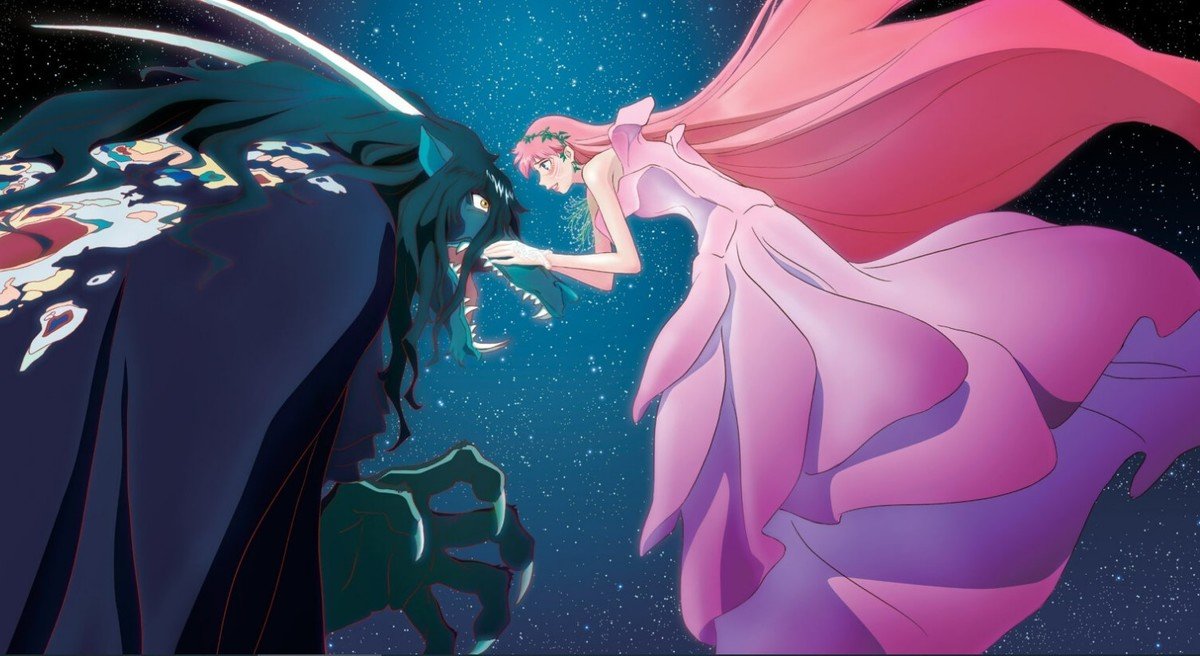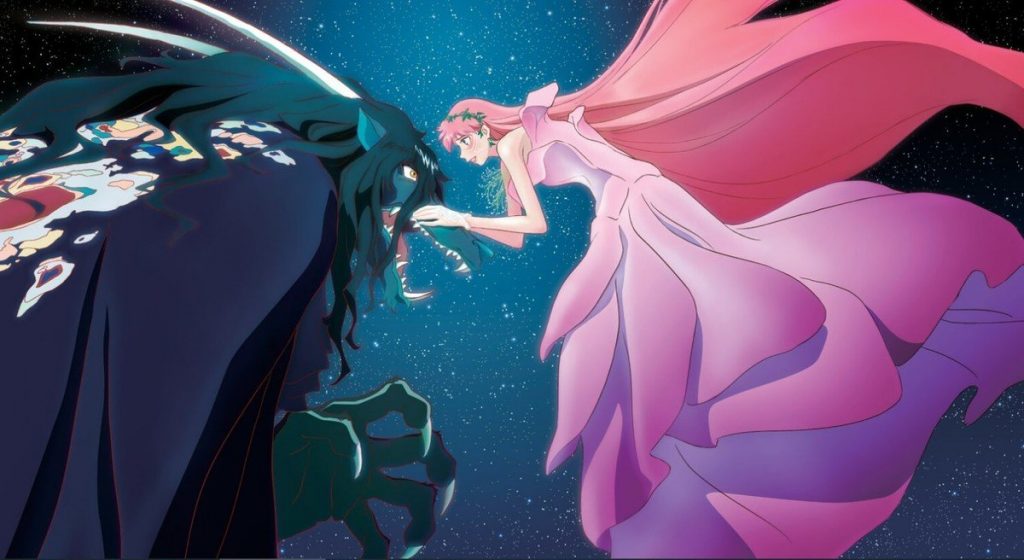

The latest Japanese animated feature from director Mamoru Hosoda (Mirai; The Girl Who Leapt Through Time), Belle offers an up-to-date telling of the classic Beauty and the Beast fable adapted for an internet age. With impressive graphics and an edgy, somewhat discombobulating sense of style, there is probably just enough that is fresh about this retelling to bring the timeless compassion at the heart of the story home to audiences once again.
The heroine of the tale is Suzu, a shy high schooler whose vital link with the world was damaged at her mother’s untimely death. No longer able to express herself amongst her peers, Suzu discovers a new lease on life through U, an online social platform that supplies subscribers with an anonymous identity designed to reflect each user’s unseen interior life.
Set free from social inhibitions, Suzu’s beautiful, freckled avatar becomes the outlet through which she disinters a suppressed musical talent. After weathering some initial discouragement from digital trolls, her songs become smash hits and she accrues a massive online following.
The classic Beauty and the Beast story picks up from here.
(Spoilers follow)
One of the interesting innovations made possible by this story world’s “second life” digital arena is that it presupposes the existence of aspects of our interior lives that often go unrecognized in our daily interactions. So when the Beast character appears – a much-maligned force of disruption amongst the users in U – he comes built-in, as it were, with questions about why in the “real” world he might behave this way.
The answer turns out to be tied in with an ongoing situation of domestic abuse.
When Suzu discovers this, she and her allies deploy the digital resources at their fingertips to zero in on and attempt to rescue from danger the real-world child-victim represented by the reprehensible online beast.
It turns out the internet, on this view, is not only a vehicle for anonymous mayhem but also an instrument for compassion.
This is an encouraging perspective, especially for those of us who have grown over accustomed to manifestations of the ugly, inconsiderate, even inhumane side of humanity often facilitated by online anonymity.
It is a good reminder, too, that the internet is ultimately just a tool used by people; it is people who must decide whether to use it either for good or evil; and that even behind the ugly façade of our most venomous digital antagonists there is a person in need of the same tender concern we all seek.
In his wisdom brimming Orthodoxy, Chesterton observes that many fairytales express profound truths. He observes, for example, that the chief spiritual insight of Beauty and the Beast is that a person must first be loved in order to become loveable.
It may be that the surface features of Belle’s distinctly contemporary animated aesthetics may not appeal to every moviegoer. But in bringing audiences back to this profound truth, for those who are prepared to peer beneath the surface, an ageless and therefore ever-new treasure awaits.
